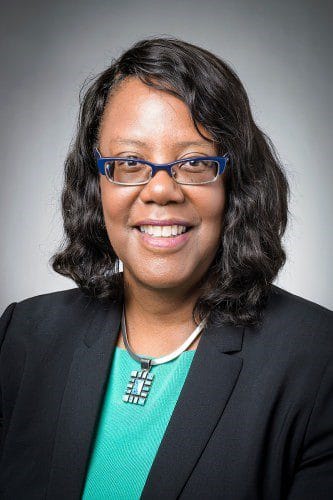
BSN@Home recognized for innovation in nursing education
The University Professional and Continuing Education Association, the leading national association for professional, continuing, and online nursing education, awarded the University of Wisconsin BSN@Home program the 2016 Celebration of Excellence Award for Mature Program. The award recognizes established credit or noncredit programs that have demonstrated sustained innovation.
The BSN@Home program is an online bachelor’s degree-completion program that provides a flexible distance learning option for busy registered nurses (RNs). The University of Wisconsin–Extension partnered with nursing programs at UW-Madison, UW-Eau Claire, UW-Green Bay, UW-Milwaukee, and UW-Oshkosh to launch the program in 1996. UW-Stevens Point joined the collaborative program in 2013.
Since BSN@Home’s launch, 1,804 graduates have earned bachelor of science in nursing degrees through one of these UW campuses and have increased the educational levels of the Wisconsin nursing workforce.
“Patients, employers, and the profession benefit when nurses advance their education,” says UW–Madison School of Nursing Dean Linda D. Scott. BSN@Home is one of the most cost-effective ways to advance Wisconsin nursing and to make a positive impact on the quality of health care. UW-Madison is proud to contribute to this important collaborative program, which has benefited nurses and patients alike for the past 20 years.”
Demand for highly educated nurses

Since its inception, the primary goal of the BSN@Home program has been to help address the shortage of BSN-prepared nurse predicted by the Wisconsin Center for Nursing. As the program matured, its goal became even more relevant. In 2011, the Institute of Medicine recommended that 80 percent of the nursing workforce have a baccalaureate degree by 2020, based on evidence showing improved outcomes for patients cared for by nurses with higher education levels.
“The Wisconsin Center for Nursing’s 2014 RN Workforce Survey noted that a substantial number of RNs still need to earn their BSN degrees if Wisconsin is to meet the goals set by the Institute of Medicine,” says Lisa Mihlbauer of UW-Milwaukee, chair of the BSN@Home Steering Committee. “Because the demand for highly educated nurses is expected to outpace most other occupations over the next decade, we remain committed to finding innovative ways to help RNs complete their BSN degrees. The BSN@Home program has built partnerships with agencies and technical colleges throughout the state, and we will continue to provide this quality program in an attempt to remove barriers to earning the BSN degree.”
When the Wisconsin Center for Nursing first predicted a shortage of BSN-prepared nurses, University of Wisconsin campuses recognized the need to rapidly increase the number of BSN-holders in the state. Together, the original five campuses discussed the possibility of creating a single shared curriculum to replace the five existing ones to effectively graduate more students and benefit from the shared resources of all participating institutions.
Under leadership from UW-Extension, faculty from the five campus nursing programs began meeting, resulting in the first collaborative nursing program to be offered within the UW System. It was also a precursor to today’s online degrees and an early model of collaboration among campuses.
Evolving technology
The delivery method for BSN@Home courses has progressed as technology has evolved. Courses that initially consisted primarily of text and audiographics have since grown to include online forums and rigorous case studies. In 1996-97, the program offered its first fully online course. By 1999, the entire curriculum was delivered on the internet.
Learning tools continue to evolve, with students currently taking advantage of more enhanced, learning-specific platforms such as the Desire2Learn course management system.
“Innovation is integral to health care and to higher education,” Scott says. “The award-winning BSN@Home program is a great example of how nurses lead in education and in practice.”
For more information about BSN@Home, see here.
Published on Dec 19 2016
Last Updated on Dec 09 2024
By DCS Staff
Categories: News, Professional Degrees & Certificates
Tags: history project, pdc-blog


